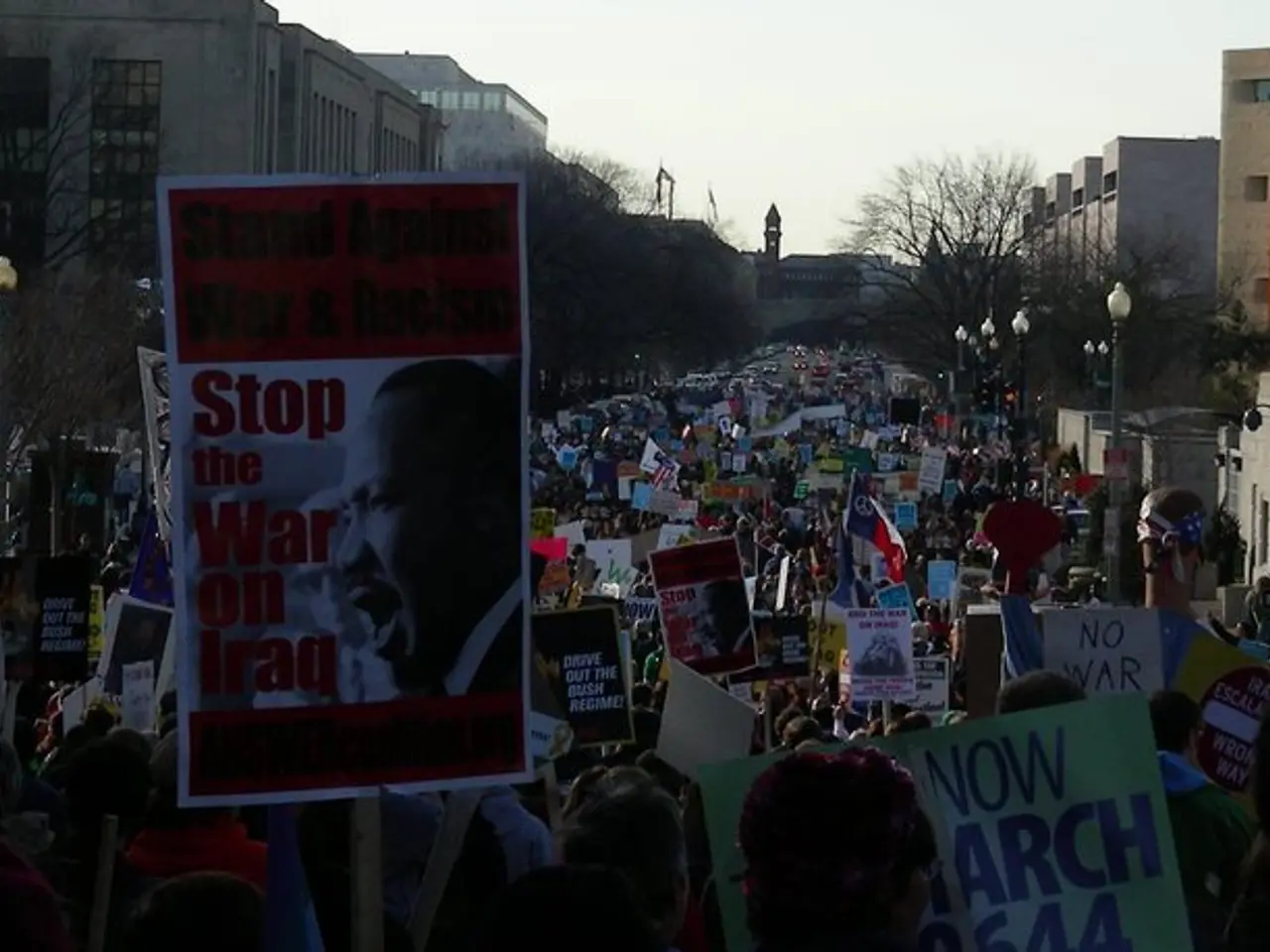United States relationships could be jeopardized due to the impediment of the defense budget, according to scholarly opinion.
Taiwan's Local Elections and Defense Spending: A Delicate Balance
As Taiwan prepares for local elections next year, the opposition camp, led by the Kuomintang (KMT) and its allies, has made blocking increases in the defense budget a key focus. This strategy, which also includes freezing government budgets and asserting legislative power, has created tension in Taiwan's politics and raised concerns about the island's ability to respond to military threats from China.
The opposition's approach involves several tactics. They aim to weaken Taiwan's defense capacity by freezing or slashing government budgets, including defense spending [1][3]. Additionally, they seek to exert legislative power by refusing to approve certain executive nominations and targeting government oversight branches, actions perceived by DPP supporters as favoring China and weakening Taiwan's democracy [1][3]. The opposition has also formed alliances to maintain their legislative majority and block key DPP initiatives.
The impact of this strategy on Taiwan-US relations is complex. While the US supports supplying Taiwan with defensive weapons and opposes any unilateral change to the status quo across the Taiwan Strait, opposition moves to limit defense budgets may raise concerns in Washington about Taiwan's military readiness [4]. However, the opposition frames their stance as a political check on ruling party policies rather than a pro-China shift, and recent elections have shown public support for the opposition bloc despite DPP attempts to paint them as Beijing-friendly [4].
This political stalemate could complicate US efforts to support Taiwan’s defense modernization given Taiwan's internal divisions on defense priorities. Taiwan's President William Lai pledged to boost the nation's defense budget to more than 3 percent of GDP in February, but the opposition's legislative majority could make this challenging [5].
Chinese observers might view the Taiwanese electorate as favouring a divided government as the best way to preserve the status quo. However, the outcome of last week's recall elections suggests that Taiwan is not as polarized as it might appear [6]. Some political observers believe the opposition camp could moderate their policies and rhetoric, while others think they could go "scorched earth" to further obstruct the DPP government [6].
The Trump administration will likely continue to pressure Taiwan to spend more on defense, but Lai will find this challenging without a DPP majority in the Legislative Yuan [7]. The response of the opposition camp to government defense spending proposals will play a significant role in determining relations between Taipei and Washington [7].
Raymond Kuo, a RAND Corp senior political scientist, states that ties between Taipei and Washington will be determined by the response of the opposition camp to government defense spending proposals [7]. Similarly, David Sacks, a Council of Foreign Relations (CFR) fellow for Asia studies, stated that Taiwan's defense budget not being increased could harm Taiwan-US relations [8].
Despite the challenges, President Lai has pledged to boost the nation's defense budget to more than 3 percent of GDP. If Taiwan's defense budget is not increased, Taiwan could be perceived as not taking its defense seriously, potentially emboldening Chinese aggression [9]. However, the largest portion of the recall movement against 24 Chinese Nationalist Party (KMT) lawmakers failed on Saturday, indicating that the opposition may not be as unified as previously thought.
In conclusion, the opposition's strategy is to leverage their legislative majority to constrain defense spending and executive power. While this strategy is popular among some voters, it has raised concerns about Taiwan’s defense posture and its implications for Taiwan-US security cooperation amid rising cross-strait tensions [1][3][4]. The outcome of the recall elections does not change the "status quo" in bilateral relations between Taiwan and the US, and does not significantly affect ties.
The opposition's strategy in Taiwan's politics includes targeted defense spending reductions [3], which raises concerns about Taiwan's ability to respond to military threats and American support for its defense [4]. The opposition's legislative power also extends to blocking certain nominations and influencing government oversight branches, actions perceived as potentially favoring China and weakening Taiwan's democracy [3]. In the realm of policy-and-legislation and politics, the opposition's approach is shaping the balance of war-and-conflicts preparedness and general-news discourse in Taiwan. The outcome of Taiwan's internal politics could impact the nation's ability to navigate war-and-conflicts and maintain strong relations with major allies like the United States.








